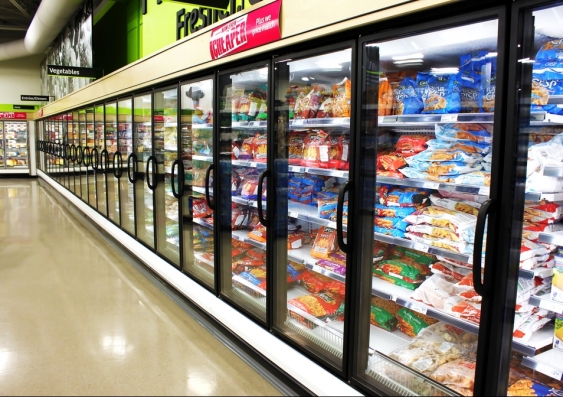Australian ready meals are saltier than ever: study
Some ready meals contain more than an entire day’s worth of salt in a single serve, according to new research published by The George Institute for Global Health and VicHealth.
Some ready meals contain more than an entire day’s worth of salt in a single serve, according to new research published by The George Institute for Global Health and VicHealth.

Julia Timms
The George Institute
+61 410 411 983
jtimms@georgeinstitute.org.au
It’s a $900 million industry taking over our supermarket aisles, but some ready meals contain more than an entire day’s worth of salt in a single serve – and according to new research, they’re getting saltier.
From those products surveyed, researchers found the average ready meal from the supermarket freezer, fridge and shelf of Coles, Woolworths, ALDI and IGA contains 50% of an adult’s recommended daily salt intake, with some containing well over the maximum daily amount of salt in a single serve.
Released as part of the Unpack the Salt campaign, the report by The George Institute for Global Health and VicHealth examined the salt content of 1,478 supermarket ready meals including popular pasta, curry and noodle dishes as well as traditional meat and vegetable meals.
Results revealed a concerning 31% increase in the salt content of chilled ready meals – despite Australia’s commitment to a 30% reduction in population salt intake by 2025. The chilled ready meal category also experienced the biggest growth, with four times as many products available in 2017 compared to 2014.
The George Institute’s Public Health Nutritionist Clare Farrand said prepared meals might solve the "what’s for dinner dilemma", but the convenience could come at a cost to health.

Ready meals might be convenient, but high salt content means that convenience comes at a cost. Photo: Shutterstock
“In choosing a convenience meal from the supermarket, many people don’t realise they might be choosing to eat on average half their recommended daily salt intake in a single serving alone, putting their health at risk,” Ms Farrand said.
There were healthier options out there, Ms Farrand said. For example, one of the options lowest in salt included a Michelle Bridges for Woolworths Delicious and Nutritious range Beef and Barley casserole, which contains 0.26 grams of salt per 100 grams and 0.89 grams of salt per serving.
Heart Foundation Victoria CEO Kellie-Ann Jolly said it was clear that reducing the amount of salt in processed and packaged foods could save thousands of lives each year by reducing stroke, and heart and kidney disease.
“Until there is a commitment to reformulate these foods with less salt, we’ll continue to see an increase in the number of Australians with high blood pressure – a major contributor to heart disease and a condition that already affects close to six million Australian,” Ms Jolly said.
VicHealth CEO Jerril Rechter said people found it difficult to keep track of how much salt they were eating, as three quarters of it came from processed and packaged foods – including ready meals.
“By choosing lower salt options and eating more fresh foods that don’t come in a packet, we can dramatically reduce our salt intake and protect ourselves from preventable and potentially deadly health conditions caused by a high salt diet,” Ms Rechter said.
Australia’s ready meal industry was experiencing rapid growth – making it an important focus for salt reduction.
“If we are to achieve a 30% reduction in Australia’s salt intake by 2025, we need to adopt targets to drive industry to reduce the amount of salt in their products.”
Unpack the Salt was launched in August by VicHealth and the Heart Foundation on behalf of the Victorian Salt Reduction Partnership to raise awareness about the high levels of salt in processed and packaged foods.